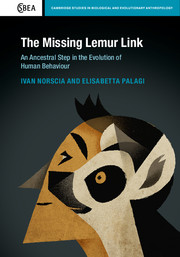Book contents
- Frontmatter
- Dedication
- Contents
- List of contributors
- A message from Jane Goodall
- Foreword
- Preface by the authors
- Acknowledgements
- Part I Communication: from sociality to society
- Part II How conflicts shape societies
- Part III Why lemurs keep in touch
- Part IV Closing remarks
- Looking back to the future – Michael Huffman
- Index
A message from Jane Goodall
Published online by Cambridge University Press: 05 May 2016
- Frontmatter
- Dedication
- Contents
- List of contributors
- A message from Jane Goodall
- Foreword
- Preface by the authors
- Acknowledgements
- Part I Communication: from sociality to society
- Part II How conflicts shape societies
- Part III Why lemurs keep in touch
- Part IV Closing remarks
- Looking back to the future – Michael Huffman
- Index
Summary
In 1960 Dr Louis Leakey, palaeontologist and anthropologist, suggested that I should travel to the Gombe National Park, in what is now Tanzania, to study the behaviour of the chimpanzees there. He believed that apes and humans shared a common ancestor some 6 or 7 million years ago and that an understanding of chimpanzee behaviour in the wild might help him better understand how our prehistoric ancestors may have behaved. Subsequently, when I had been in the field for some 18 months, he arranged for me to go to Cambridge University to work for a PhD (although I had never been to college). In the early sixties ethologists tended to be reductionists, searching for simple explanations for very complex behaviours. When I talked about the Gombe chimpanzees having different personalities, complex cognitive abilities, minds, and emotions such as pleasure and sadness, anger, frustration and so on, I was accused of anthropomorphism as those attributes, I was told, were unique to the human animal. Some scientists were even shocked that I referred to the chimpanzees by names rather than numbers. Fortunately, I had learned from my dog, as a child, that none of that was true.
Since those days the science of animal behaviour has come a long way and there have been many studies of animal cognition, animal emotions and even personality. In other words the sharp line once believed to separate humans from the rest of the animal kingdom was blurred. There was a difference of degree between the behaviour of humans and chimpanzees, but not of kind. Since then other studies have shown that many of the complex behaviours shared by the great apes and humans are present also in monkeys. And during the last decade the barrier between monkeys and lemurs has also been found to be increasingly fragile. Lemurs – the spirits of our ancestors according to some Malagasy traditions – exchange services, suffer and manage anxiety, reconcile, and use play to increase tolerance towards unfamiliar individuals.
Many species of lemurs are extremely endangered, and an understanding of their behaviour, in addition to helping us to understand the origins of some of our own behaviour, is also crucial for determining the best conservation strategies. We need to understand how the lemurs interact with each other and with their forest environment.
- Type
- Chapter
- Information
- The Missing Lemur LinkAn Ancestral Step in the Evolution of Human Behaviour, pp. xiii - xivPublisher: Cambridge University PressPrint publication year: 2016

